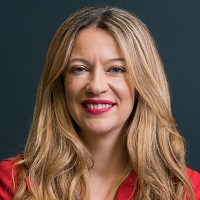The Costly Mistake You Might Be Making With Your First 401(k)
Most people start contributing to their retirement savings later in life. That could be a big-time mistake, literally costing you thousands of dollars.


Profit and prosper with the best of Kiplinger's advice on investing, taxes, retirement, personal finance and much more. Delivered daily. Enter your email in the box and click Sign Me Up.
You are now subscribed
Your newsletter sign-up was successful
Want to add more newsletters?
In your 20s, it’s easy to make retirement planning a “future you” problem.
With housing costs, student loans and entry-level salaries, a 401(k) can feel more like a nice-to-have, rather than a need-to-have. But the truth may be surprising: Your first retirement account matters more than any other for your future wealth.
Retirement planning is a long-term game where timing changes everything. Starting just a few years earlier can amount to thousands of dollars more in your accounts by retirement.
From just $107.88 $24.99 for Kiplinger Personal Finance
Become a smarter, better informed investor. Subscribe from just $107.88 $24.99, plus get up to 4 Special Issues

Sign up for Kiplinger’s Free Newsletters
Profit and prosper with the best of expert advice on investing, taxes, retirement, personal finance and more - straight to your e-mail.
Profit and prosper with the best of expert advice - straight to your e-mail.
The Kiplinger Building Wealth program handpicks financial advisers and business owners from around the world to share retirement, estate planning and tax strategies to preserve and grow your wealth. These experts, who never pay for inclusion on the site, include professional wealth managers, fiduciary financial planners, CPAs and lawyers. Most of them have certifications including CFP®, ChFC®, IAR, AIF®, CDFA® and more, and their stellar records can be checked through the SEC or FINRA.
Here’s why your first job's 401(k) (or starting an IRA yourself) deserves your attention now:
Time is more valuable than money
When it comes to your retirement, time is your greatest asset.
Consider two college graduates with different approaches: Alyssa and Jamie. Both contribute to 401(k) accounts throughout different points in their career. In both scenarios, the market returns an illustrative 5% yearly (note that an investment can go down as well as up):
Alyssa starts early and contributes $300 a month immediately after graduation at age 22. She stops contributing at age 37 and keeps her money invested until retirement at 67.
- Total contributions: $54,000 (over 15 years)
- Retirement balance: $346,562
Jamie starts later and begins contributing $300 a month at age 37 and continues until age 67.
- Total contributions: $108,000 (over 30 years)
- Retirement balance: $249,678
By the time they retire, there’s a roughly 32% difference in their balances. Despite contributing twice as much money, Jamie ends up with nearly $100,000 less than Alyssa at retirement.
The power of compound interest
While Jamie contributes twice as much over twice as long a time frame, it’s Alyssa who ends up better off. It all comes down to two words: compound interest.
Compound interest is like a snowball rolling down a hill. As your investments generate returns, those returns generate additional returns. Over time, this creates an accelerating growth cycle. That’s the secret power of your first 401(k).
Save today to save less
The dollars saved in your 20s have the potential to be the most valuable retirement dollars you'll ever save. Yet a growing number of Gen Z feel they may never retire, and only 1 in 5 are actively saving for retirement. It’s not hard to see why, but the reality is that starting to save early may make saving for retirement more affordable.
In the Jamie and Alyssa example, delaying contributions by just 15 years cost Jamie roughly $150,000. She ended up saving an extra $54,000, but still retired with $100,000 less than Alyssa.
Taking control of your retirement early allows your money to work harder for longer.
How to start: Your first 401(k) or IRA
Opting into your first employer-sponsored 401(k) plan is one of the easiest ways to leverage the time value of money. If your employer offers matching contributions, make sure to take advantage. It's essentially extra money that will continue to grow in your retirement account.
For example, an employer might match 100% of your contributions up to a certain percentage of your annual income. On a $50,000 salary, a 4% contribution is an extra $2,000 toward your retirement each year.
While 401(k) accounts are the most popular retirement benefit, you may find yourself in an internship, fellowship or part-time work directly out of college. If you don’t get access to an employer-sponsored plan, you can still open an IRA.
Looking for expert tips to grow and preserve your wealth? Sign up for Building Wealth, our free, twice-weekly newsletter.
Unlike a 401(k), which is managed by your employer, an IRA offers certain tax advantages and is tied directly to you, no matter where you go next.
There are two kinds of IRAs:
- Traditional IRAs offer tax-deductible contributions now, with taxes paid when you withdraw in retirement
- Roth IRAs use after-tax dollars but allow tax-free growth and withdrawals in retirement
Take control
Most Americans wait until mid to late career to prioritize saving for retirement. That delay can be costly. With less time to grow, contributions in your 40s and 50s may never go as far as those invested in your 20s.
Time in the market is one of the most important factors in building your nest egg. And once you're behind, catching up can feel nearly impossible. Starting early, even with small contributions, can put you significantly ahead.
Your first job's 401(k) isn't just another benefit. It's a financial opportunity no young investor should overlook.
This theoretic analysis is provided solely for informational and educational purposes. PensionBee Inc. does not make any representations or warranties as to the accuracy, timeliness, suitability, completeness, or relevance of any information prepared by any unaffiliated third party, whether linked to PensionBee Inc.’s website or incorporated herein, and takes no responsibility therefore. Nothing presented here constitutes tax, legal, financial or investment advice. This theoretic analysis does not take into account the specific financial, legal or tax situation, objectives, risk tolerance, or investment needs of any individual investor. All information provided is based on publicly available data and research at the time of posting. Any data, statistics, or third-party sources referenced are for educational purposes only and should not be relied upon as sole decision-making tools. This information, and any associated customer testimonial or third party endorsement does not constitute an offer, solicitation, or recommendation to buy or sell any securities or investments. Your investment is at risk. Past performance is no guarantee of future results.
Related Content
- Eight 401(k) Mistakes That Could Tank Your Retirement
- You Could Be a 401(k) Millionaire. Here's How
- Should You Convert a Traditional 401(k) into a Roth 401(k)?
- Your 401(k) Can Delay Social Security and Increase Payments
- How to Avoid These 10 Retirement Planning Mistakes
Profit and prosper with the best of Kiplinger's advice on investing, taxes, retirement, personal finance and much more. Delivered daily. Enter your email in the box and click Sign Me Up.

Romi Savova is the founder and CEO of Pension Bee, a leading online retirement provider she launched in 2014 after experiencing firsthand the complexity of workplace retirement account transfers. Driven by her vision to simplify retirement saving for the mass market, Romi has transformed Pension Bee into a trusted brand with over $7 billion in assets under management and more than 260,000 customers.
-
 Why Some Michigan Tax Refunds Are Taking Longer Than Usual This Year
Why Some Michigan Tax Refunds Are Taking Longer Than Usual This YearState Taxes If your Michigan tax refund hasn’t arrived, you’re not alone. Here’s what "pending manual review" means and how to verify your identity if needed.
-
 If You'd Put $1,000 Into Caterpillar Stock 20 Years Ago, Here's What You'd Have Today
If You'd Put $1,000 Into Caterpillar Stock 20 Years Ago, Here's What You'd Have TodayCaterpillar stock has been a remarkably resilient market beater for a very long time.
-
 Good Stock Picking Gives This Primecap Odyssey Fund a Lift
Good Stock Picking Gives This Primecap Odyssey Fund a LiftOutsize exposure to an outperforming tech stock and a pair of drugmakers have boosted recent returns for the Primecap Odyssey Growth Fund.
-
 If You'd Put $1,000 Into Caterpillar Stock 20 Years Ago, Here's What You'd Have Today
If You'd Put $1,000 Into Caterpillar Stock 20 Years Ago, Here's What You'd Have TodayCaterpillar stock has been a remarkably resilient market beater for a very long time.
-
 Good Stock Picking Gives This Primecap Odyssey Fund a Lift
Good Stock Picking Gives This Primecap Odyssey Fund a LiftOutsize exposure to an outperforming tech stock and a pair of drugmakers have boosted recent returns for the Primecap Odyssey Growth Fund.
-
 More Tools to Build a Bond Ladder
More Tools to Build a Bond LadderVanguard aims to launch a line of target-maturity corporate bond ETFs.
-
 Why Your Pet Should Be In Your Estate Plan
Why Your Pet Should Be In Your Estate PlanIncluding your wishes in your will or in a pet trust can ensure proper care when you can’t provide it.
-
 How to Find Joy and Meaning When You Want to Retire — But Can’t Yet
How to Find Joy and Meaning When You Want to Retire — But Can’t YetFor Gen X, delaying retirement can be an opportunity to pilot-test your second act, plan for your inheritance and structure trusts for your kids.
-
 A Newly Retired Couple With a Portfolio Full of Winners Faced a $50,000 Tax Bill: This Is the Strategy That Helped Save Them
A Newly Retired Couple With a Portfolio Full of Winners Faced a $50,000 Tax Bill: This Is the Strategy That Helped Save ThemLarge unrealized capital gains can create a serious tax headache for retirees with a successful portfolio. A tax-aware long-short strategy can help.
-
 5 Retirement Myths to Leave Behind (and How to Start Planning for the Reality)
5 Retirement Myths to Leave Behind (and How to Start Planning for the Reality)Separating facts from fiction is an important first step toward building a retirement plan that's grounded in reality and not based on incorrect assumptions.
-
 I'm a Financial Adviser: Silence Is Golden, But It Hurts Your Heirs More Than You Think
I'm a Financial Adviser: Silence Is Golden, But It Hurts Your Heirs More Than You ThinkTalking to heirs about transferring wealth can be overwhelming, but avoiding it now can lead to conflict later. Here's how to start sharing your plans.